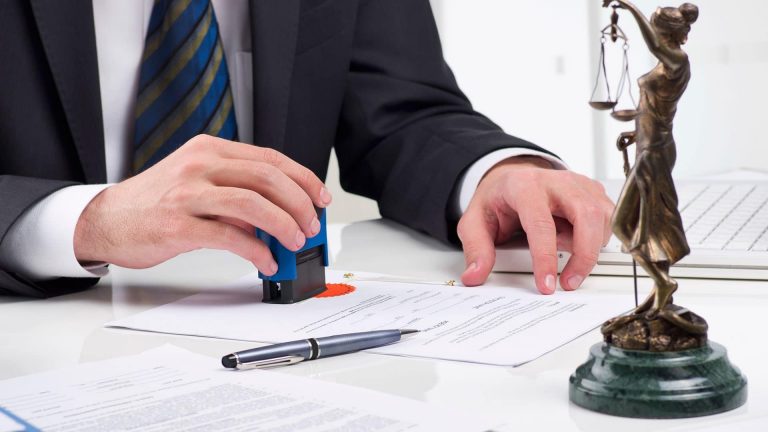What is a patent?
A patent can protect a device, substance, method or process, provided it is novel, useful and inventive. Only granted patents are legally enforceable in Australia, and the process can take 5-7 years before it is Granted.
There are different kinds of patents, with different protection terms:
- Standard patents last twenty years.
- Innovation patents last eight years.
- Pharmaceutical patents last twenty-five years.
- Provisional patents last one year.
- Divisional and National Phase patents last twenty years.
- Patent Cooperation Treaty Patents last 30/31 months from the Provisional filing date.
What is a Patent Attorney?
An experienced Patent Attorney will make the process easy for you by providing a range of services, examples:
- Ensures you meet the Patent Act obligations, so you don’t lose your patent later.
- Drafts your patent with broad rights, so as many copycat “alternatives” as possible are protected.
- Recommends patent filing strategies and options which complement your commercial objectives and opportunities.
- If the Patent Office refuses your patent application, work out, and present a case arguing to overcome the objection(s).
- Advise you when there’s a conflict or dispute, or if your patent is infringed.
The Patent Application Process
The application process involves a number of steps and a number of conditions. Patents must be lodged with IP Australia who will then determine if the application meets legislative requirements to be approved. Patents are different to trademarks in that a patent is generally over a method or process, rather than for a logo or business name. Patents are a lengthier process and definitely require professional patent lawyer assistance before applying. You can complete the patent application process yourself, however you need to weigh up the risk and outcomes. If you haven’t completed a patent application previously, it is recommended by IP Australia that you consult a patent lawyer to boost your chances of success.
The patent process usually begins with an initial patent application and then subsequent applications within twelve months. The first application is a provisional application, which then progresses into a standard application or international patent co-operation treaty application. The patent applications are then examined by a government examiner for IP Australia, or WIPO. The review covers a number of aspects of the patent process by covering off whether the patent specifications qualify for the protections afforded by a patent.
The process will move through stages of review and objections, as well as arguments and amendments for the patent specifications. Essentially this part of the process strengthens the patent application by removing superfluous or other details which may conflict with prior art patents. If the IP Australia Examiner agrees that the content is valid, then they will accept the application, after which there is an opposition period and then the patent is granted (if no opposition). Oppositions only occur in only a small number of applications and is usually within a hotly contested industry, or highly innovative sector.
Patent Considerations
Some of the considerations you will need to make throughout the patent process, will determine whether you do apply for the patent or not. A patent will afford you the right to prevent others from handling your invention or implementing your idea within the borders of Australia or internationally if you choose to patent overseas as well. Patents also allow the same licensing rights as you can do with a trademark. Patents allows you to build business relationships with overseas partners who may have the ability to bring your invention to life, without the start up costs. Licensing in this case would be advantageous. You can also sell the patent belonging to your invention, if this is what you want to do and if the price is right. Selling a patent isn’t as clear cut, so the services of a professional are required.
Make sure that if you are going to patent a trade secret or part of your business acumen, you do not publicly demonstrate or sell the invention without a patent already in place. Doing so could invalidate your patent application. Even discussing the invention with your business partners could spell disaster unless they have signed non-disclosure or confidentiality agreements.
The alternative to patenting is to keep it a trade secret, or to prevent someone else patenting it and suing you, you should disclose your invention to as many public spaces as possible. Publishing details online is the quickest and easiest way to prevent anyone else from obtaining a patent for your product. The issue with this strategy is that you have no monopoly on the product, and anyone can use it for free for their own benefit. This is something you will have to weigh up in your strategy. A patent lawyer would be able to assist in providing advice on this aspect.
Patent Benefits
The protections afforded by a patent are one of the biggest benefits to individuals and partnerships. Usually creating jobs, boosting the economy and generating millions in revenue. The benefits allow investment because there’s a defined and protected market, and investment income can allow for continuing development of innovative products. The patent can be sold, licensed, or exploited by the owner.
The monopoly of the market that a patent can provide can often outweigh the time and money spent in gaining the patent. A patent is also a strong deterrent for intellectual property theft and if you have the resources or means to monitor your intellectual property and the patents, then you retain substantial value in the worth of the patent.
Patent Searches
As with any aspect of intellectual property, you must do your patent searches. It is recommended that you have a Patent Attorney conduct a patent search for you. You must make the effort to research your idea to find any possible public discussions or presentations. If you cannot find anything, you would then move to decide on the final form of the invention, and then provide the necessary details for your Patent Attorney to lodge a Patent Application.
Right Choice?
Not sure if a patent is for you and your invention? There is another aspect to consider. Provisional applications are a cost effective way to get a priority date. This establishes your right to be known as the first person to file the invention with IP Australia without substantial cost. The Provisional application only affords you a 12-month window to decide on your next steps and whether you would like to proceed. From the Provisional application you can move to a proper patent or elect to not move forward at all. It is an opportunity for those not quite sure about where their invention is going but the core structure of the invention is known and unlikely to change.
Overseas Patents
What about expansion into foreign markets? Patent Cooperation Treaties are in place to allow you an indication if your patent application would be accepted in overseas markets. The Treaty would also allow you to choose which markets you want your patent protection.
There are risks with leaving the invention as a trade secret, ultimately the choice is yours. It is recommended you discuss the options with one of our patent lawyers today.
To obtain comprehensive advice regarding your options.






